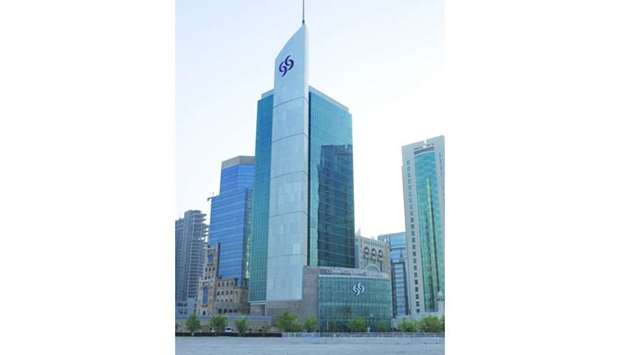Global credit rating agency Capital Intelligence (CI) has affirmed the long-term foreign currency rating (LT FCR) and short-term foreign currency rating (ST FCR) of Commercial Bank (CBQ) at ‘A-’ and ‘A1’, respectively.
At the same time, CI has also affirmed the lender’s bank standalone rating (BSR) of ‘bbb-’, core financial strength (CFS) rating of ‘bb+’ and extraordinary support level (ESL) of 'high'.
The lender's LT FCR is set three notches above the BSR to reflect the high likelihood of official extraordinary support in case of need.
This is based on the government’s strong track record of support for Qatari banks. At different points in time such support has included the transfer of ‘difficult investments’ to the state, the transfer of real estate loans and the injection of additional equity.
Most recently, all banks were able to rely on a sharp increase in government deposits to stave off any liquidity pressures following the June 2017 embargo led by Saudi Arabia and the UAE. The government’s financial capacity to support the bank is also considered as strong given Qatar’s sovereign rating.
CI factored in the bank’s well-established domestic franchise and its fairly significant operations abroad, notably in Turkey, which provides diversification.
The bank's new business model of de-risking legacy assets, diversifying its credit portfolio, and reshaping its loan book are gradually showing positive results.
Highlighting that one positive area of the financial metrics is profitability, where operating and net profitability have improved; it said the profitability has recovered "significantly" over the last two years due to lower credit costs, steady improvement in operating cost efficiency, and higher net interest margin.
Stressing that the Commercial Bank would need to boost its capital over the medium term if credit growth accelerates, CI said total equity to total assets ratio (balance sheet leverage) is better than those of its peers.
Its CET-1 (common equity Tier) ratio is well above the minimum requirement of the Qatar Central Bank (QCB), while its capital adequacy ratio comfortably exceeds the QCB floor for total capital including conservation buffer, D-SIB (domestic systematically important bank) buffer and ICAAP Pillar II capital charge.
The bank's liquidity profile is satisfactory, although tighter than its peers, as it has higher reliance on wholesale/interbank funding, it said, adding depositor concentration, while not disclosed, is expected to be high, given the situation at other Qatari banks in general.
"As long as the Qatari banks retain good access to international capital markets for medium-term financing, funding will be manageable, especially as the government sector has shown itself to be both willing and able to add liquidity whenever needed," it said.
The lender's LT FCR is set three notches above the BSR to reflect the high likelihood of official extraordinary support in case of need.
This is based on the government’s strong track record of support for Qatari banks. At different points in time such support has included the transfer of ‘difficult investments’ to the state, the transfer of real estate loans and the injection of additional equity.
Most recently, all banks were able to rely on a sharp increase in government deposits to stave off any liquidity pressures following the June 2017 embargo led by Saudi Arabia and the UAE. The government’s financial capacity to support the bank is also considered as strong given Qatar’s sovereign rating.
CI factored in the bank’s well-established domestic franchise and its fairly significant operations abroad, notably in Turkey, which provides diversification.
The bank's new business model of de-risking legacy assets, diversifying its credit portfolio, and reshaping its loan book are gradually showing positive results.
Highlighting that one positive area of the financial metrics is profitability, where operating and net profitability have improved; it said the profitability has recovered "significantly" over the last two years due to lower credit costs, steady improvement in operating cost efficiency, and higher net interest margin.
Stressing that the Commercial Bank would need to boost its capital over the medium term if credit growth accelerates, CI said total equity to total assets ratio (balance sheet leverage) is better than those of its peers.
Its CET-1 (common equity Tier) ratio is well above the minimum requirement of the Qatar Central Bank (QCB), while its capital adequacy ratio comfortably exceeds the QCB floor for total capital including conservation buffer, D-SIB (domestic systematically important bank) buffer and ICAAP Pillar II capital charge.
The bank's liquidity profile is satisfactory, although tighter than its peers, as it has higher reliance on wholesale/interbank funding, it said, adding depositor concentration, while not disclosed, is expected to be high, given the situation at other Qatari banks in general.
"As long as the Qatari banks retain good access to international capital markets for medium-term financing, funding will be manageable, especially as the government sector has shown itself to be both willing and able to add liquidity whenever needed," it said.




